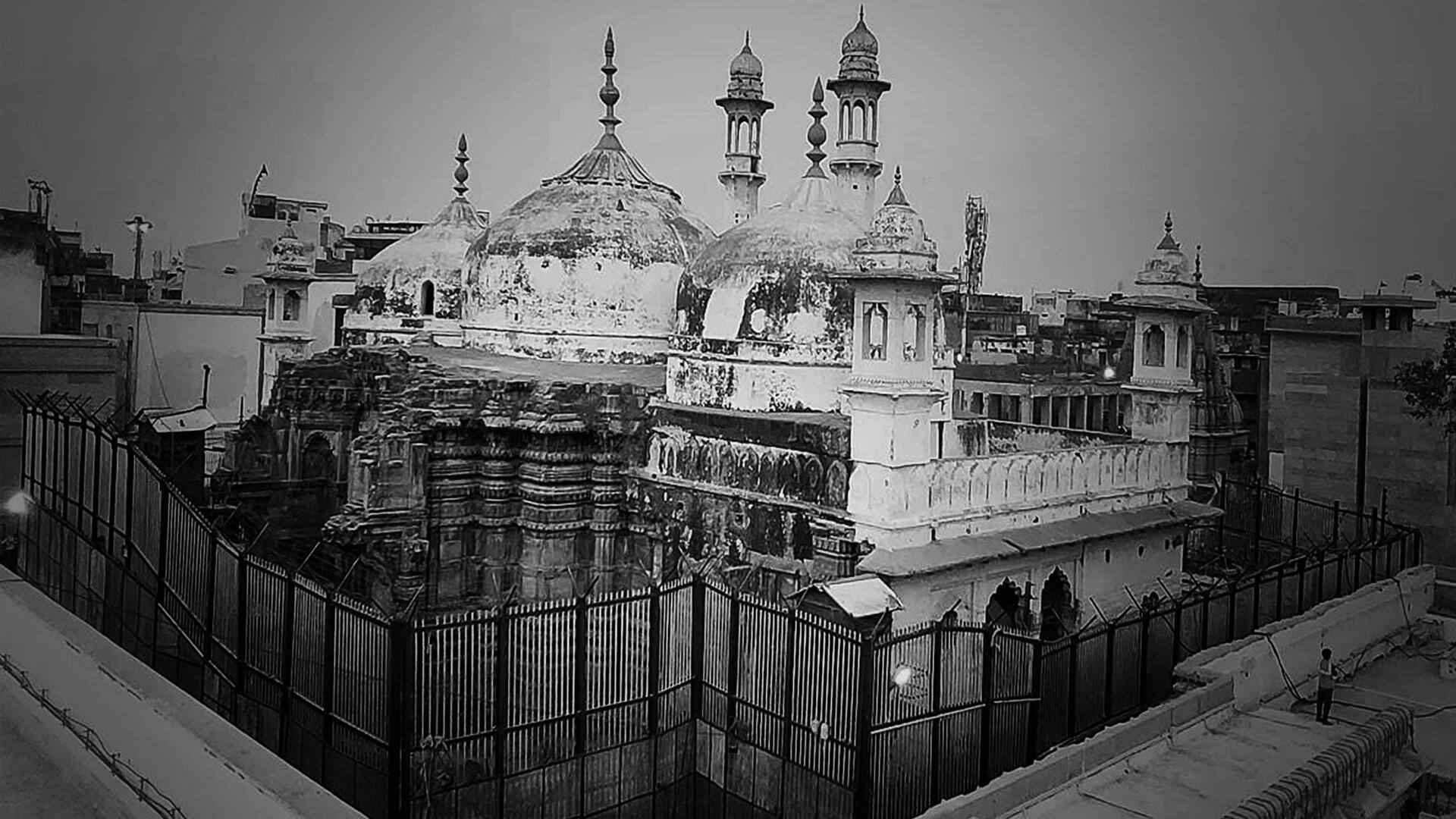
Varanasi court allows ASI survey of Gyanvapi Mosque
What's the story
The Varanasi District Court on Friday allowed a scientific survey of the Gyanvapi Mosque by the Archeological Survey of India (ASI), except for the spot that was sealed earlier. The court asked the ASI to submit its report by August 4. The survey aims to find out if the mosque was constructed over the pre-existing structure of a Hindu temple.
Context
Why does this story matter?
The Gyanvapi Mosque row, dubbed "Babri Masjid 2.0," started in 1991 when some Hindu groups demanded the right to pray on the mosque premises against the Places of Worship Act. Last year, the Supreme Court ordered the sealing of a spot where the "Shivling" was said to have been found. The mosque's management committee, however, insists it is part of a fountain.
Petition
What does the petition by 4 four Hindu women say
The petition was moved by four Hindu women in May, claiming that the Gyanvapi Mosque, situated next to the Kashi Vishwanath Temple, was built upon a Shiv temple destroyed by "Muslim invaders." Their application stated that the Swayambhu Jyotirlinga, a self-born shivling, existed at the site for lakhs of years before Muslim invaders damaged or destroyed it.
Details
SC deferred survey and carbon dating in May
In May, the SC deferred a scientific survey, including a carbon dating of the disputed object, which was found during a videographic survey last year. Earlier, the mosque management committee pleaded against the survey, claiming that it could damage the mosque complex. In response, the Hindu plaintiffs' counsel told the court that the ASI stated the survey could be conducted without damaging the complex.
Statement
Priest of Vishwanath Temple refutes Hindu plaintiffs' argument
Meanwhile, the priest of the Kashi Vishwanath Temple in Uttar Pradesh's Varanasi, Rajendra Prasad Tiwari, said that his forefathers took care of the erstwhile temple before Mughal emperor Aurangzeb destroyed it in 1669 after killing his brother Dara Shikoh. He rejected the Hindu plaintiffs' argument that the object is the original Vishweshwar Shivling, saying that his forefathers established it at the Kashi Vishwanath temple.